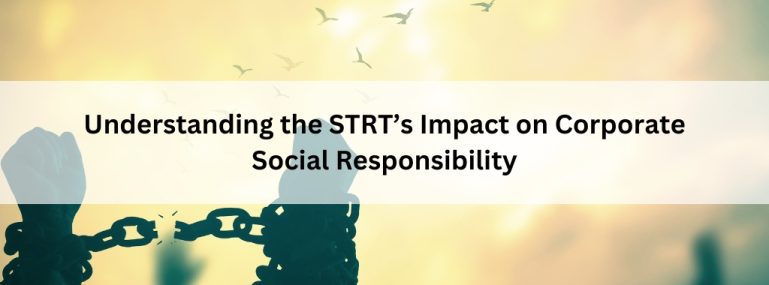In this new globalized economy, corporate entities are held accountable more than ever in the realm of supply chain through CSR activities, companies emphasize excellent practices, sustainability, and outcomes in a social context. The latest, most fantastic tool in this regard is the Slavery and Trafficking Risk Template. The Slavery and Trafficking Risk Template (STRT) Compliance is a standardized tool designed to help companies identify and mitigate risks related to modern slavery and human trafficking within their supply chains. By providing a structured approach to risk assessment, STRT enables businesses to ensure compliance with international regulations and enhance transparency.
The Slavery and Trafficking Risk Template (STRT) enhances supply chain transparency, ensures regulatory compliance, and builds stakeholder trust. By adopting STRT, companies can demonstrate their commitment to ethical practices, mitigate risks, and contribute to social justice, economic stability, and environmental sustainability.
Integrating the Slavery and Trafficking Risk Template (STRT) into Corporate Social Responsibility (CSR) practices offers numerous advantages. It enhances supply chain transparency, ensuring compliance with global regulations and building trust with stakeholders. It not only mitigates risks but also strengthens supplier relationships, boosts investor confidence, and improves employee morale.
STRT covers several slavery, human trafficking, and child labour regulations like The UK Modern Slavery Act, The California Transparency in Supply Chain, Mexico’s Forced Labour Regulation, The US Federal Acquisition Regulation (FAR) etc. By demonstrating a commitment to ethical practices, companies can differentiate themselves in the market and foster a culture of integrity. Ultimately, the adoption of STRT contributes to social justice, economic stability, and environmental sustainability, setting a positive example for the industry.
ComplianceXL provides consulting services to companies in the field of slavery, human trafficking and child labour due diligence measures and assist in the process of collection and validation of STRTs. With ComplianceXL’ s robust compliance management platform enable businesses to make sure they are up to date as part of their compliance data management strategy through due diligence, supplier engagement, and compliance documentation.
FAQs:
1.How does STRT enhance supply chain transparency?
STRT provides a structured approach to assessing suppliers and identifying potential risks, allowing companies to gain a clearer understanding of their supply chain dynamics and address unethical practices proactively.
2.How does STRT build trust with stakeholders?
By implementing STRT, companies demonstrate their commitment to ethical practices and human rights, which builds trust with customers, investors, employees, and other stakeholders.





